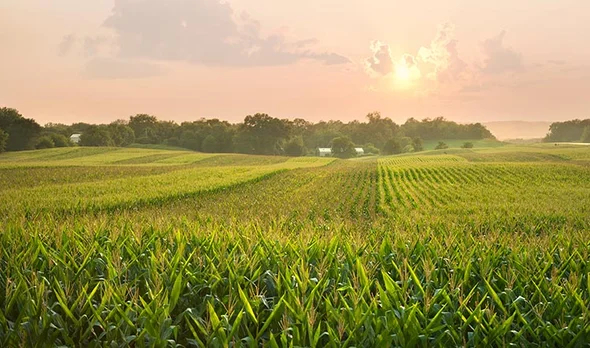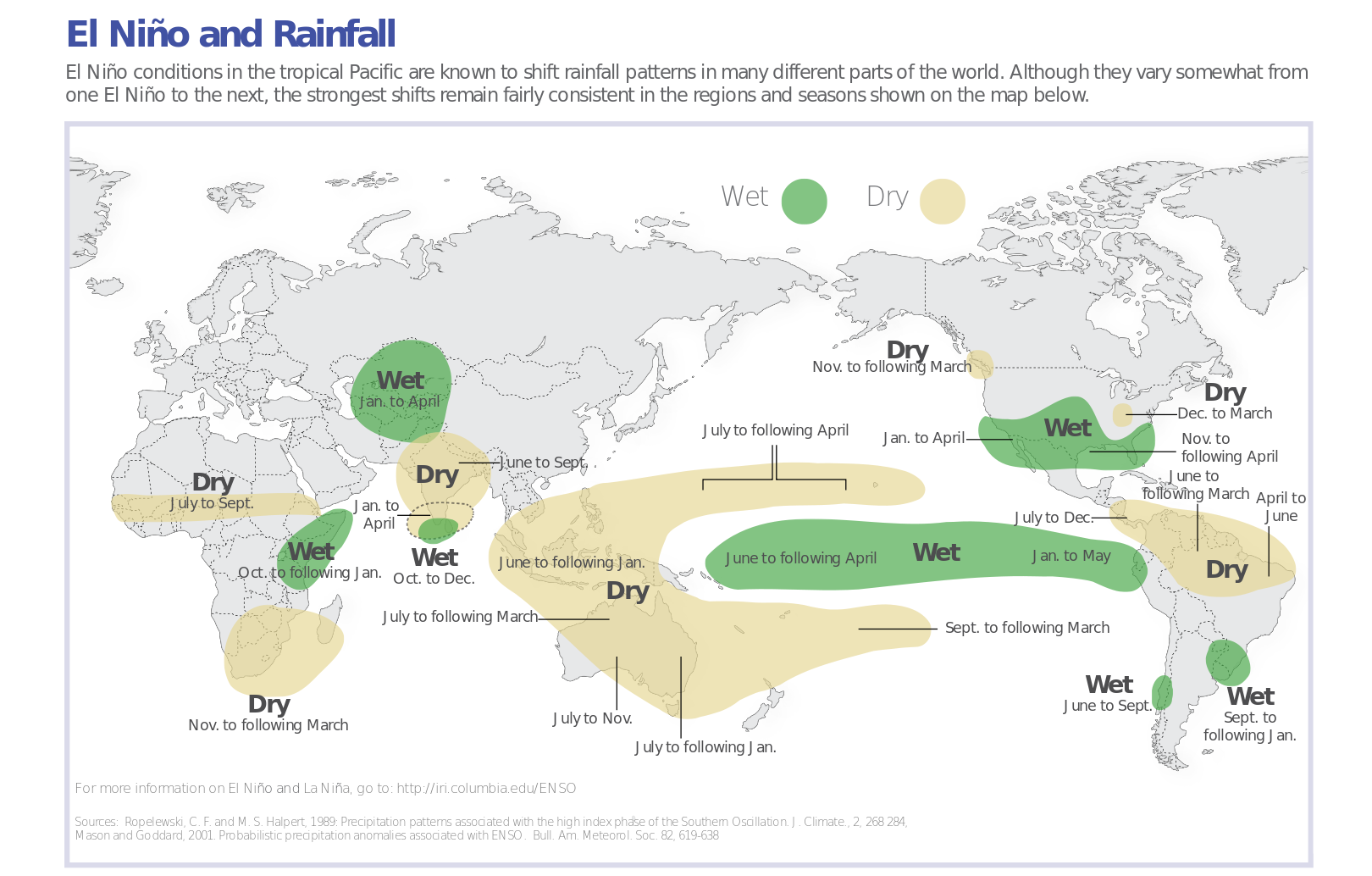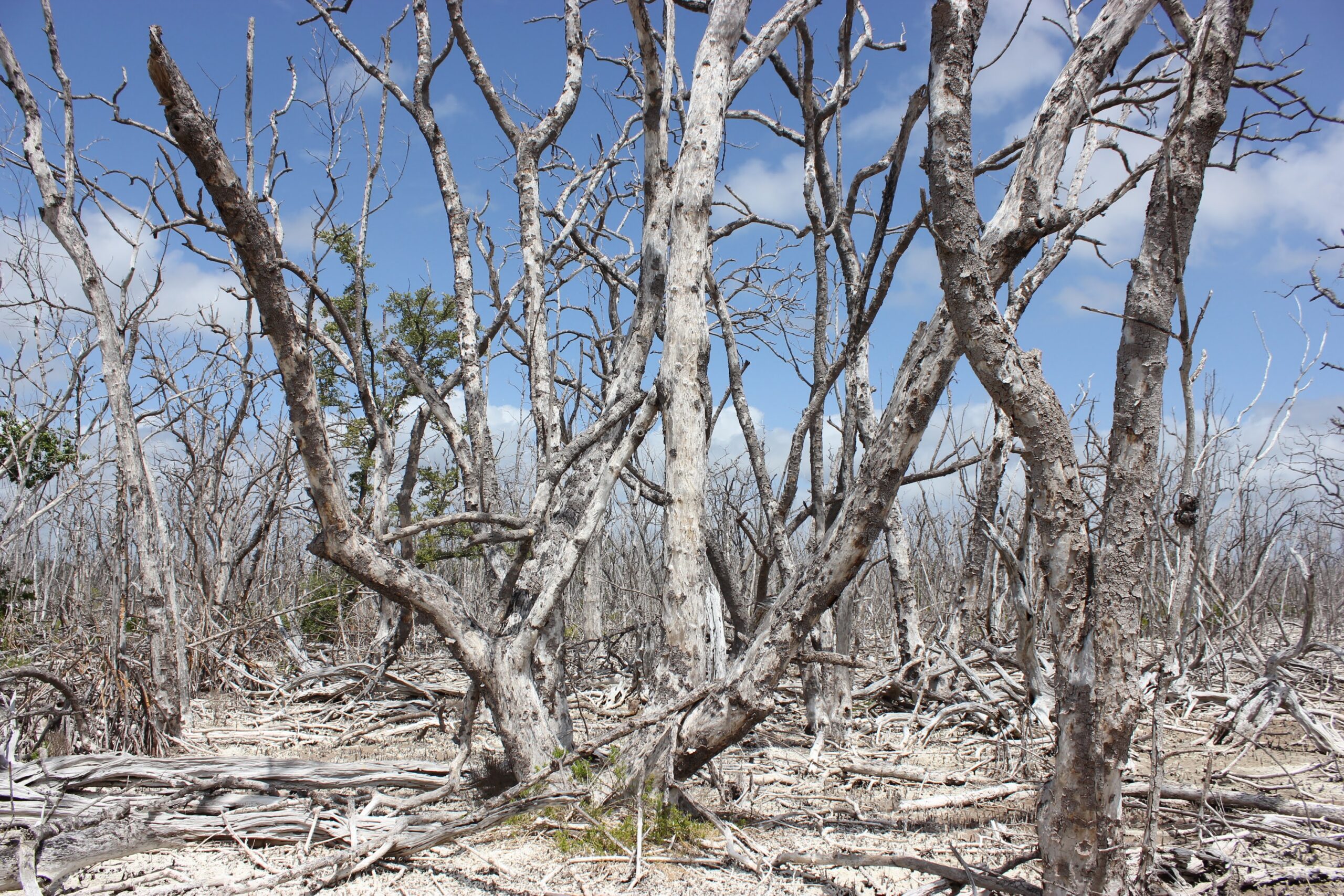
In recent decades, international trade has become an increasingly important part of the global food system. Today, most people depend on food imports to meet daily caloric requirements. This reliance on global food trade means that production shocks in remote countries can lead to reduced availability of food, leading to price spikes that make food unaffordable.
Weston Anderson, an Assistant Research Scientist at the Earth System Science Interdisciplinary Center, is lead author on a new study that investigates the frequency and trends of simultaneous yield shocks in global breadbaskets, regions that specialize in grain crops. Anderson and his team focused on how large-scale climate anomalies have affected multiple breadbasket yield shocks over the last century using over 34,000 crop yield observations collected from 25 countries dating back to 1900.
“Collating and evaluating the historical records of crop yield statistics that we have available is a critical aspect of understanding the fragility of our global food system.” said Anderson. “Unfortunately the data is often difficult to access and in no single centralized location. A major contribution of this work is to gather and publish this data in a single, publicly available location.”
Using this data, the team found that of nine global breadbaskets, at least three breadbaskets experienced major simultaneous yield shocks for their maize crop 10.3% of the time. Simultaneous maize crop yield shocks rarely occurred in four or five breadbaskets, happening just 2.3% and 1.1% of the time, respectively. For wheat, 18.4% of the time, three or more breadbaskets experienced major simultaneous yield shocks. Similarly, simultaneous shocks in four or five breadbaskets was rare, occurring 4.6% and 2.3% of the time, respectively.
Furthermore, the team found that multiple breadbasket yield shocks decreased in frequency, even as those breadbaskets experience increasingly frequent climate-related shocks. For both maize and wheat breadbaskets, there were fewer simultaneous yield shocks during the 1975–2017 time period as compared to 1931–1975.
“That our food system is experiencing fewer simultaneous crop yield shocks came as a bit of a surprise to us,” said Anderson, “We know that our food system is under ever increasing stress due to climate change, so we expected synchronous crop yield failure rates to be increasing, but that wasn’t the case. Unfortunately, we still have every reason to believe that climate change will reverse this trend at some point.”
The team also found that large-scale modes of interannual climate variability – such as the El Niño Southern Oscillation (ENSO), the Indian Ocean Dipole (IOD), and the North Atlantic Oscillation (NAO) – have an effect on simultaneous yield shocks. ENSO, the IOD, and the NAO refer to naturally occurring modes of climate variability in the ocean and atmosphere that affect atmospheric circulation, surface temperature, and precipitation on regional-to-global scales. ENSO, the IOD, and the NAO connect the growing conditions of regions and seasons to one another, and affect crop yields in multiple breadbaskets at once.

All three modes affect the relative probability of simultaneous yield shocks in pairs of breadbaskets by up to 20–40% in both maize and wheat breadbaskets. In particular, NAO strongly affected the overall number of wheat yield shocks globally, despite only affecting northern hemisphere breadbaskets.
As climate change persists, Anderson believes it is crucial to adapt our food system to a warming world.
“We must continue to improve our understanding of how both climate change and climate variability affect global breadbaskets,” said Anderson.
Weston Anderson is an agroclimatologist studying the dynamics of climate variability and its relation to food security using reanalysis products, remote sensing observations and model simulations. He is an Assistant Research Scientist at the Earth System Science Interdisciplinary Center at UMD working with the Famine Early Warning System Network (FEWS NET) and the NASA Hydrological Sciences Lab.
To access the paper, click here: “Climate variability and simultaneous breadbasket yield shocks as observed in long-term yield records”.





